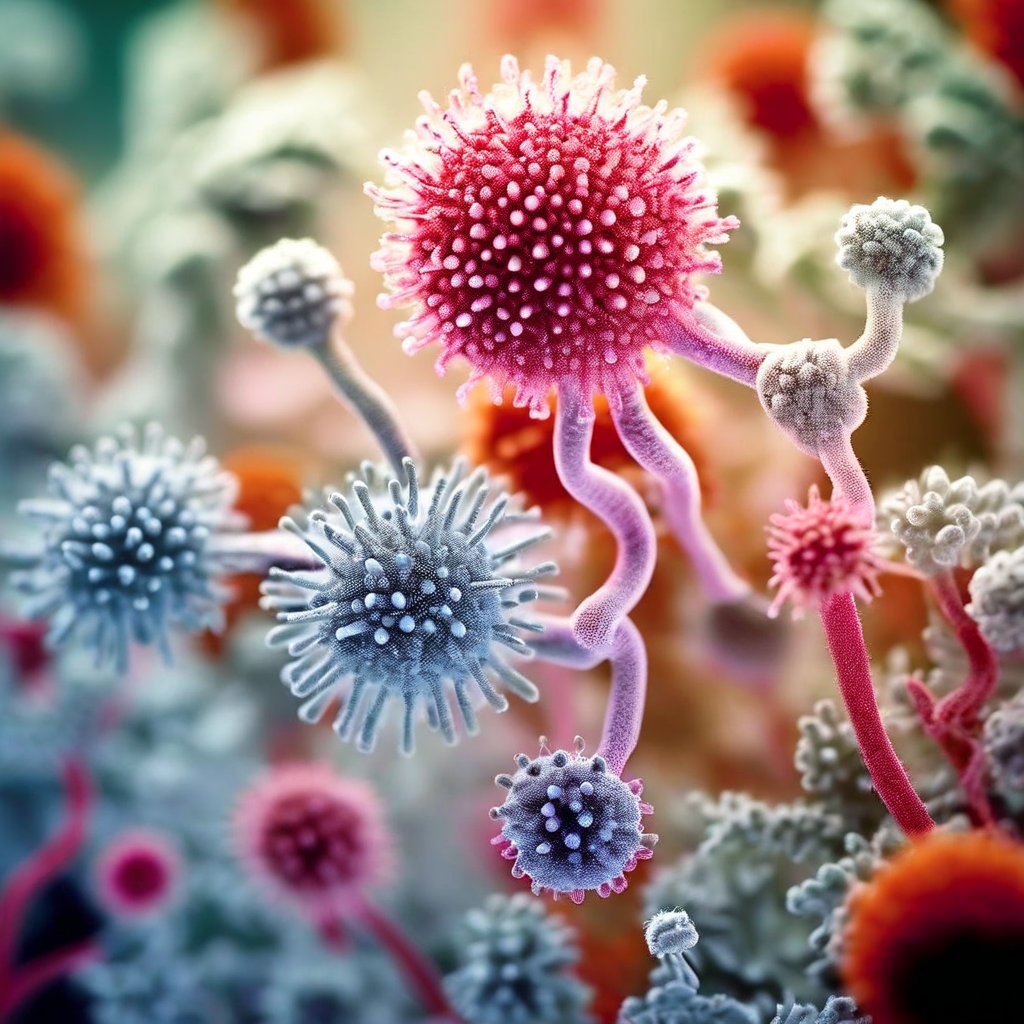The Interaction of Fertility, Microbiome and Gut Health
Introduction
The human gut microbiome, a complex community of trillions of microorganisms, plays a critical role in maintaining overall health, including reproductive health. Recent research has highlighted the significant impact of gut health on fertility, suggesting that a balanced and diverse gut microbiome is essential for optimal reproductive function. This article explores the complex relationship between gut health, microbiome, and fertility and sheds light on how dietary and lifestyle choices can influence reproductive outcomes.
The intestinal microbiome and its functions
The gut microbiome is made up of over 500 species of bacteria, which together make up about 100 trillion microbes. These microorganisms are essential for various body functions such as digestion, nutrient absorption, immune response, and maintaining the intestinal barrier. The gut microbiota also produces short-chain fatty acids (SCFAs) such as butyrate, which are important for gut health and general metabolic processes.
gut microbiome and fertility
mechanisms of influence
Hormonal regulation: The gut microbiome interacts with the endocrine system and influences the production and metabolism of hormones such as estrogen and progesterone. An imbalance of gut bacteria can lead to hormonal dysregulation, affecting the menstrual cycle and ovulation.
Immune function: A healthy gut microbiome supports a balanced immune response, which is critical for reproductive health. Dysbiosis, or an imbalance of gut bacteria, can lead to chronic inflammation, which negatively impacts fertility by affecting egg quality and embryo development.
Nutrient absorption: The gut microbiota plays an important role in nutrient absorption. Essential nutrients such as folic acid, which are crucial for fetal development, are absorbed more efficiently when the gut microbiome is healthy.
Effects on male and female fertility
Female fertility: Dysbiosis in the gut microbiome is associated with conditions such as polycystic ovary syndrome (PCOS), endometriosis, and poor pregnancy outcomes. Studies have shown that a healthy vaginal and endometrial microbiome can significantly improve implantation rates and pregnancy outcomes.
Male fertility: The gut microbiome also impacts male fertility. Dysbiosis can lead to reduced sperm quality and motility. Certain gut bacteria have been found to affect hormone levels and sperm parameters, thus impacting overall reproductive health.
Influence of diet on intestinal health and fertility
Diet is a powerful modulator of the gut microbiome. Certain dietary patterns can promote a healthy gut microbiome and thus improve fertility.
gut-friendly foods
Probiotics: Foods rich in probiotics, such as yogurt, kefir, sauerkraut and kimchi, can introduce beneficial bacteria into the gut, supporting a balanced microbiome.
Prebiotics: Foods rich in prebiotics, including high-fiber fruits and vegetables, whole grains and legumes, provide food for beneficial gut bacteria and promote
Omega-3 fatty acids: Foods high in omega-3 fatty acids, such as fatty fish, chia seeds and flaxseeds, help reduce inflammation and support gut health.
Resistant starch: Foods containing resistant starch, such as chilled potatoes, rice and legumes, promote the production of SCFAs, which are beneficial for gut health.
eating habits
Mediterranean diet: Rich in fruits, vegetables, whole grains and healthy fats, this diet is associated with a diverse and healthy gut microbiome. It supports hormonal balance and reduces inflammation, thereby promoting fertility.
Plant-based diet: A diet high in plant-based foods provides plenty of fiber and prebiotics, which support a diverse gut microbiome and improve reproductive health.
Integrating gut health into fertility treatments
Medical professionals are increasingly recognizing the importance of gut health in fertility treatment. A comprehensive assessment of gut health, including dietary habits and analysis of the gut microbiome, can help tailor fertility treatments to individual needs. Stress management techniques such as mindfulness and yoga can also have a positive impact on gut health and improve fertility.
challenges and future prospects
Although the link between gut health and fertility is promising, several challenges remain. The complexity of the gut microbiome and its variability from person to person make standardization of treatments difficult. Further research, including longitudinal studies and randomized controlled trials, is needed to establish stronger causal relationships and understand the long-term effects of gut health interventions on fertility.
conclusion
The gut microbiome plays a central role in reproductive health, influencing hormonal balance, immune function, and nutrient absorption. A healthy gut microbiome, supported by a balanced diet rich in probiotics, prebiotics, and anti-inflammatory foods, may improve fertility. Incorporating gut health into fertility treatment is a promising approach to improve reproductive outcomes. As research in this field advances, personalized nutritional and lifestyle interventions targeting the gut microbiome could become a cornerstone of fertility treatment.
references
1. Qi X, Yun C, Pang Y, Qiao J. The influence of the gut microbiota on the reproductive and metabolic endocrine system. Gut Microbes. 2021 Jan-Dec;13(1):1-21. doi: 10.1080/19490976.2021.1894070. PMID: 33722164; PMCID: PMC7971312.
2nd Tomaiuolo R, Veneruso I, Cariati F, D'Argenio V. Microbiota and Human Reproduction: The Case of Female Infertility. High throughput. 2020 May 3;9(2):12. doi: 10.3390/ht9020012. PMID: 32375241; PMCID: PMC7349014.
3. Nova E, Gómez-Martinez S, González-Soltero R. The Influence of Dietary Factors on the Gut Microbiota. Microorganisms. 2022 Jul 7;10(7):1368. doi: 10.3390/microorganisms10071368. PMID: 35889087; PMCID: PMC9318379.
4th Zhang F, Xiong Y, Wu K, Wang L, Ji Y, Zhang B. Genetic Insights into Intestinal Microbiota and Risk of Infertility: A Mendelian Randomization Study. Microorganisms. 2023 Sep 15;11(9):2319. doi: 10.3390/microorganisms11092319. PMID: 37764164; PMCID: PMC10538041.
5th Salvadori M, Rosso G. Update on the gut microbiome in health and diseases. World J Methodology 2024 Mar 20;14(1):89196. doi: 10.5662/wjm.v14.i1.89196. PMID: 38577200; PMCID: PMC10989414.
6th Komiya S, Naito Y, Okada H, Matsuo Y, Hirota K, Takagi T, Mizushima K, Inoue R, Abe A, Morimoto Y. Characterizing the gut microbiota in females with infertility and preliminary results of a water-soluble dietary fiber intervention study . J Clin Biochem Nutr. 2020 Jul;67(1):105-111. doi: 10.3164/jcbn.20-53. Epub 2020 Jun 5. PMID: 32801476; PMCID: PMC7417798.


